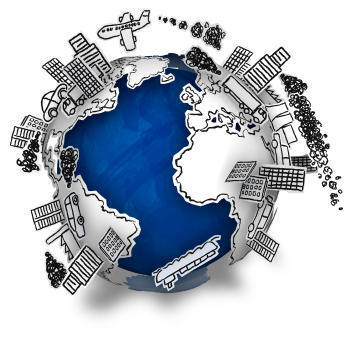
What is the endgame of the contemporary green movement? It’s a critical question since environmentalism arguably has become the leading ideological influence in both California government and within the Obama administration. In their public pronouncements, environmental activists have been adept at portraying the green movement as reasonable, science-based and even welcoming of economic growth, often citing the much-exaggerated promise of green jobs.
The green movement’s real agenda, however, is far more radical than generally presumed, and one that former Sierra Club President Adam Werbach said is defined by a form of “misanthropic nostalgia.” This notion extends to an essential dislike for mankind and its creations. In his book “Enough,” green icon Bill McKibben claims that “meaning has been in decline for a long time, almost since the start of civilization.”
And you may have thought the Romans and ancient Chinese were onto something!
Rather than incremental change aimed at preserving and improving civilization, environmental activists are inspired by books such as “Ecotopia,” the influential 1978 novel by Berkeley author Ernest Callenbach. He portrays an independent “green” republic based around San Francisco, which pretty much bans fossil fuels and cars and imposes severe limits on childbearing. These measures are enforced by a somewhat authoritarian state.
Read the entire piece at The Orange County Register.
Joel Kotkin is executive editor of NewGeography.com and Roger Hobbs Distinguished Fellow in Urban Studies at Chapman University, and a member of the editorial board of the Orange County Register. He is also executive director of the Houston-based Center for Opportunity Urbanism. His newest book, The New Class Conflict is now available at Amazon and Telos Press. He is also author of The City: A Global History and The Next Hundred Million: America in 2050. He lives in Orange County, CA.













Time to Embrace Climate Change
Climate change hysteria has been around a long time and by now it should be clear that it isn't going anywhere. The solutions proposed are far too draconian to ever be embraced in a democratic society. Still, it is a pain in the butt, and the amount of lip service paid to it in the media, on university campuses, and among Democratic politicians is nauseous. What to do about it? Here's an idea:
It's time to embrace climate change. In the first place, CO2 is a form of fertilizer and thanks to rising levels in the atmosphere world agricultural productivity has, according the Freeman Dyson, increased on the order of 20%. In other words, rising CO2 is critical to feed a hungry world. https://goo.gl/sZnkP2
Secondly, all the climate models predict that most of the warming will take place near the poles, at night, in the winter. What could be more ideal? As a look at the globe will quickly confirm, a few degrees rise in average global temperatures would greatly increase the size of the temperate zone, the most favorable habitat for human civilization.
These two considerations together far outweigh the relatively puny downsides of global warming: changing animal habitats and several feet of rise in ocean levels. Throw in more extreme weather events, which aren't even supported by the evidence, and these are still a drop in the bucket.
Climate change, bring it on!